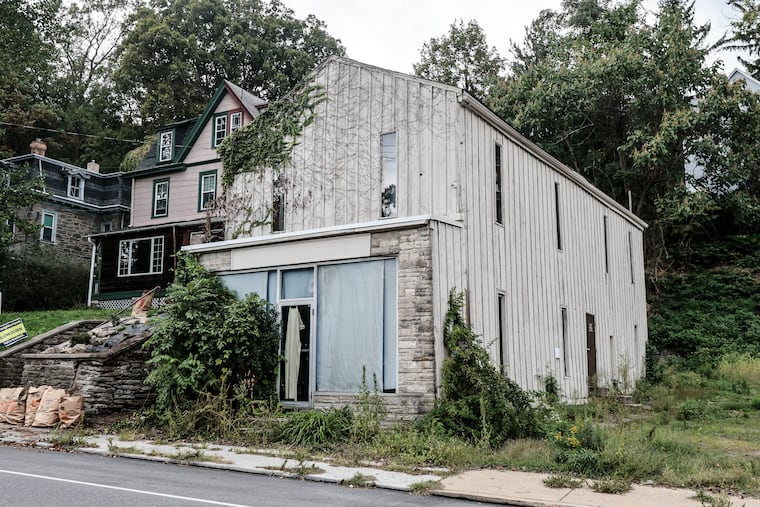Baseball Hall of Famer Reggie Jackson’s childhood home in Wyncote might soon be a parking lot
The property lies abandoned along busy Greenwood Avenue, having changed hands several times.

When Reggie Jackson was a kid, he made a deal with his dad: If he did well in baseball and was named a starter for Cheltenham High School, he wouldn’t have to work at his father’s shop.
That tailor’s shop and dry cleaners occupied the first floor of the modest two-story home at 149 Greenwood Ave. in suburban Wyncote owned by Martinez Clarence Jackson, a World War II pilot and former Negro Leagues infielder.
“I did anything I could not to go into the shop and have to work on the pressing machine,” the future baseball Hall of Famer told The Inquirer’s Frank Dolson in 1994 upon the elder Jackson’s death at age 89.
Today the property lies abandoned along busy Greenwood Avenue, having changed hands several times. Soon it could become a parking lot.
Cheltenham Township officials are considering an application to demolish the property from developers Matt Sigel and Marc Policarpo, of Station Partners. Their plans are not set in stone, they said, but one option they favor is using the land for a parking lot for an iThrive co-working space, which would be their third.
“The site does have parking needs,” Sigel said, “but we are open to try to solve those in other creative ways and are not hell-bent on making it this way.”
» READ MORE: Reggie Jackson’s All-Star Game home run, 50 years later, still defines his Reggie-ness | Mike Sielski
The township’s Boards of Historical and Architectural Review reviewed the partners’ application last week, and is requiring them to return to a future session with more documentation, said Ann Rappoport, the township commissioner for the neighborhood that includes the former Jackson property, which dates to 1900.
Sigel and Policarpo bought the property in February.
“A lot of the history and character of that building had been removed and destroyed,” Sigel said.
Vines crawl over the structure’s facade. The only sign on the door says: “No Trespassing.” Passersby would have no idea of the Montgomery County building’s former inhabitant from its current state.
Policarpo said whatever form development takes place, they will rectify that oversight.
“There would absolutely be a recognition of what was there and who was there,” he said.
Jackson, who could not be reached for comment, was one of relatively few Black residents during his time in Wyncote. His parents divorced when he was 4, and he lived with his father and two siblings. He was 17 when Martinez Jackson was convicted of making bootleg whiskey in the basement of the Greenwood Avenue home, and spent a half year behind bars. “He occasionally ran a red light,” Jackson once said of his father. The two remained close during all their years together.
The son excelled in a number of sports in high school, including baseball, football, track, and basketball. According to October Men, by Roger Kahn, Jackson pitched three no-hitters for Cheltenham and batted .550 his senior year.
After spending two years at Arizona State University — he went there on a football scholarship — he began a long, celebrated baseball career. He was inducted into the Hall of Fame in 1993.
Jackson earned the nickname “Mr. October” for his clutch postseason performances, which included home runs on three consecutive pitches, allowing the New York Yankees to clinch the 1977 World Series.